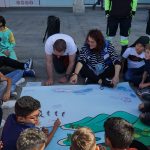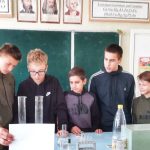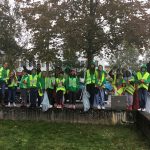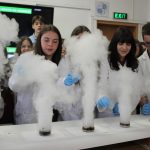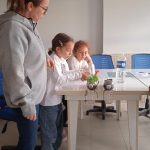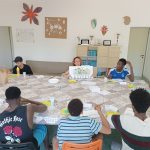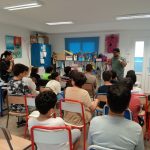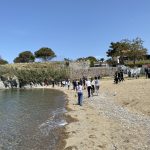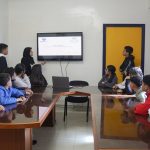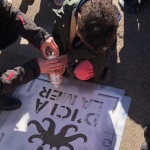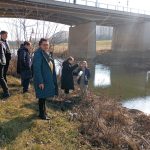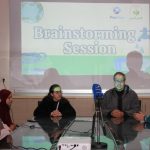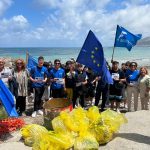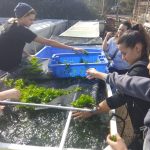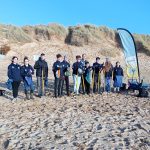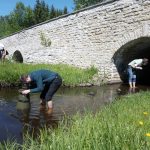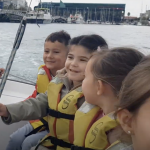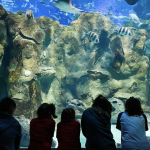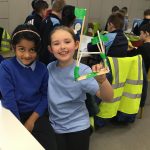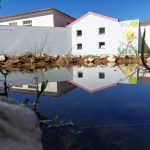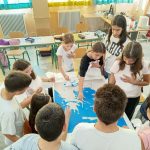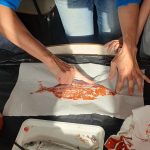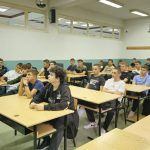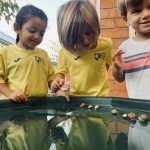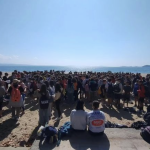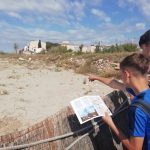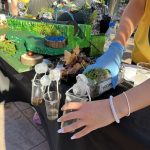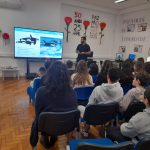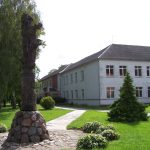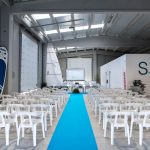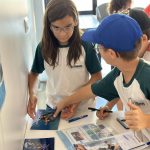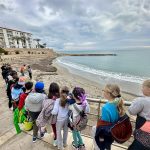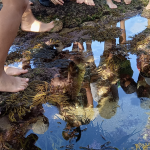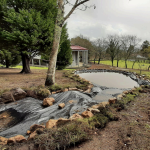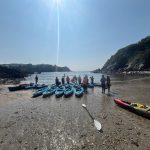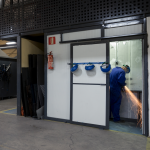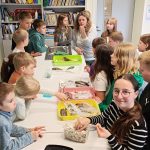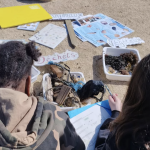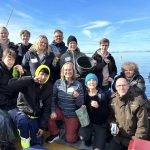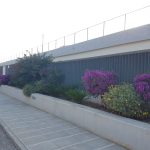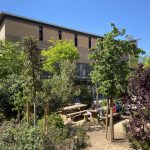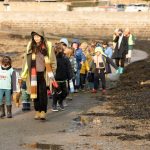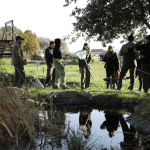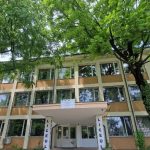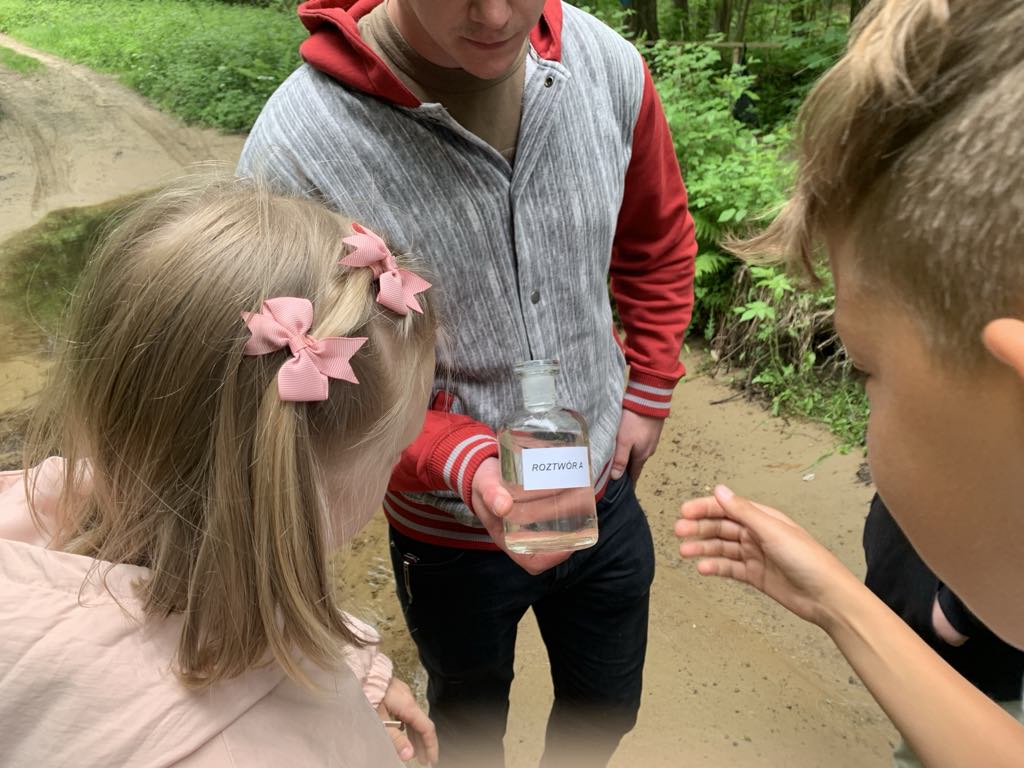
L.O.C.K. – Lubrzanka: Observe, Conserve and Keep
Suków, Poland
3rd FUNDING CALL
Nestled in the lush, rural landscapes of Suków, Poland, Szkoła Podstawowa is proving that big ideas can flourish in small communities. With its innovative project L.O.C.K. – Lubrzanka: Observe, Conserve and Keep, the school is empowering 150 students aged 7–12 to become passionate protectors of their local river, Lubrzanka, while building vital 21st-century skills in science, digital literacy, environmental stewardship, and creative communication.
From river clean-ups and scientific sampling to bilingual book creation and international collaboration, L.O.C.K. is more than a school project — it is a movement that other schools across Europe can look to for inspiration.
Project Objectives: Local River, Global Lessons
The core aim of L.O.C.K. is to deepen students’ understanding of local biodiversity and water ecosystems, equipping them with practical tools to observe and protect the Lubrzanka River. The project sets out to:
- Improve students’ knowledge of water resources and treatment processes.
- Foster a strong sense of environmental responsibility among students, teachers, and the wider community.
- Promote sustainable behaviours, including alternatives to plastic in daily life.
- Encourage water conservation through citizen science and creative engagement.
- Advance water literacy across the curriculum using real-world applications.
By integrating local environmental issues into the learning process, L.O.C.K. nurtures not only academic growth but also civic participation and ecological awareness.



4th graders had visited the Centre for Ecological Education in Widełki and the Waste Water Treatment Station in Nowiny (Wodociągi Kieleckie and Oczyszczalnia Ścieków Sitkówka- Nowiny).
The Centre for Environmental Education in Widełki is a modern centre for nature and environmental education. It runs ecological workshops, has a vegetable and herb eco-garden, a bee apiary and an educational barn with handicraft workshops. Our students, divided into three groups, after detailed instruction and under the supervision of instructors, using professional equipment and reagents, tested water samples from the river, whose waters are the focus of the project. The laboratory work was demanding and tedious, but allowed the students to gain valuable experience of environmental research.
This week our pupils visited the Waste Water Treatment Station, where they learned what happens to water after it is used. They observed biological and mechanical treatment processes and learnt about the importance of taking care of what goes into the sewage system.



Activities and Collaborations: From Classrooms to Clean-Ups
Running across nine months, the project is divided into three phases: coordination, implementation, and dissemination.
Month 1 – Setting the Foundation
The school assembled a dedicated team of educators to coordinate the project. Students participated in a logo design contest, and preparations began for greenhouse building, the loofah experiment, and local study visits.
Months 2–5 – Learning by Doing
Students conducted water quality assessments and uploaded findings to the EU-Citizen.Science platform. They visited a Wastewater Treatment Station and the Department of Environmental Engineering at Kielce University, gaining firsthand insight into how water is managed and treated.
Community river clean-ups were organised, involving families and local residents. The collected waste was transformed into thought-provoking artworks, encouraging reflection on the impact of pollution. Loofah seeds were planted in greenhouses at school and home, linking everyday habits to sustainable alternatives.
Meanwhile, students engaged in digital storytelling — producing videos, infographics, and photo reports — and met virtually with peers from Escola Básica Macinhata do Vouga in Portugal via the eTwinning platform, adding a European dimension to their work.
Months 2–7 – Creativity Meets Conservation
A highlight of the project is the creation of a bilingual children’s book on microplastics, illustrated by the students themselves. Written in Polish-English and Portuguese-English, the book raises awareness while promoting multilingual literacy and environmental values. It will be distributed to primary schools in Poland and Portugal.
Months 8–9 – Sharing the Story
The project culminates in exhibitions, online presentations, and community events showcasing students’ achievements. Results will be shared on school websites, social media, local TV, and educational platforms like the European School Education Platform. A final report will be submitted to the Youth Climate Report on the United Nations website.
Outputs and Impact: Beyond the Riverbank
L.O.C.K. delivers a rich mix of educational resources and community outputs:
- Artworks made from river waste
- Water analysis exhibitions and scientific data shared on public platforms
- Workshop presentations on microplastics, loofah use, and water conservation
- Videos documenting school visits and environmental actions
- A bilingual children’s book on microplastics
- A dedicated project webpage showcasing all materials, media, and outcomes
- A final report submitted to the UN’s Youth Climate platform
Perhaps the most lasting impact is the transformation of students into curious, confident, and conscientious environmental advocates. They learn not just about water, but how to care for it — and how to inspire others to do the same.
Inspiring Other Schools: You Can Start Here
The beauty of L.O.C.K. lies in its adaptability. Whether your school is rural or urban, near a river or a coast, the principles of observation, conservation, and collaboration are universal. By connecting science, creativity, and community, L.O.C.K. offers a compelling model for schools looking to integrate environmental education into everyday learning — with lasting results for both students and the planet.



